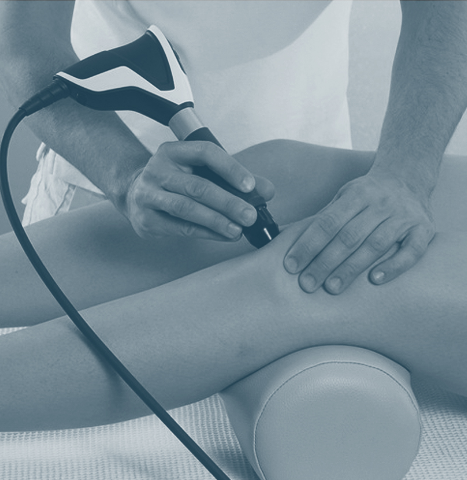
OUR SERVICES:
BEVERLY HILLS

OUR SERVICES:

Extracorporeal shockwave therapy (ESWT) is a state-of-the-art, highly effective, non-invasive medical treatment that uses shockwaves to treat various musculoskeletal conditions, including those affecting joints, tendons, and muscles. Here’s a simplified explanation of how it works and what it’s used for:
How It Works: ESWT involves delivering high-energy shockwaves to the affected area using a specialized device. These shockwaves are mechanical waves that carry energy and can penetrate tissues, stimulating healing processes.
Stimulation of Healing: When the shockwaves reach the target tissue, they induce several biological responses, including increased blood flow, tissue regeneration, and the release of substances that reduce inflammation and pain.
Treatment Areas: ESWT is commonly used to treat conditions such as plantar fasciitis (inflammation of the tissue on the bottom of the foot), achilles tendinopathy, tennis elbow, shoulder tendinitis, and other musculoskeletal disorders.
Procedure: During the procedure, the patient typically lies down, and a gel is applied to the skin overlying the affected area to improve the transmission of shockwaves. The therapist then applies the shockwave device to the skin and delivers controlled pulses of energy to the target tissue.
Sessions and Results: A course of treatment usually consists of multiple sessions spaced over several weeks. Some patients may experience improvement after just one session, while others may require several sessions to achieve optimal results. The effects of ESWT may continue to develop over time following the completion of treatment.
Advantages: ESWT offers several advantages, including its non-invasive nature, minimal risk of complications, and relatively short treatment sessions. It can be performed as an outpatient procedure, and most patients can resume normal activities shortly after treatment.
Effectiveness: While some patients experience significant pain relief and improvement in function, others may not respond as well. The effectiveness of ESWT may vary depending on factors such as the severity of the condition, the patient’s overall health, and the specific protocols used during treatment.

ESWT is considered a valuable treatment option for certain musculoskeletal conditions, particularly those that have not responded to other conservative therapies. However, it’s essential to consult with a healthcare professional to determine if ESWT is appropriate for your specific condition and individual circumstances.